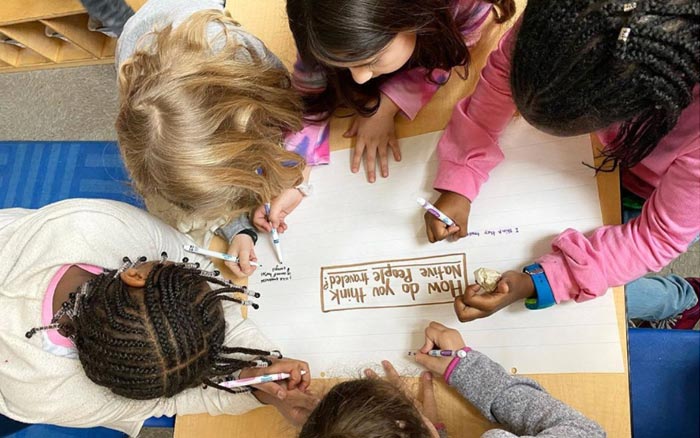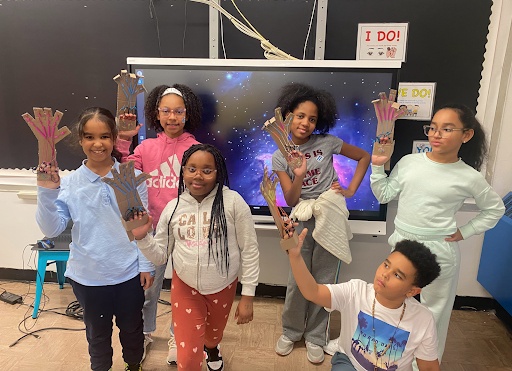
Our schools have often focused more on maintaining society as it is than on empowering young people to transform their communities and broader society. In these environments, learners are exposed to a narrow range of content and perspectives about why the world is the way it is, and have limited opportunities to engage in conversations about societal issues and pursue change. But, in order to prepare for tomorrow, learners must critically examine and be exposed to a wide range of perspectives on complex local and global issues. Doing so will help all learners develop the knowledge, skills, and mindsets needed to work toward a more just world today and in the future.

Ensuring that learners have opportunities to examine and tackle the complex issues around them can increase motivation, engagement, sense of belonging, feelings of empowerment, and more. This is because these opportunities are relevant to learners’ lives and, as a result, bring value to learning. They also provide learners real opportunities to impact change, and in doing this foster agency and a sense of control. Additionally, these opportunities can positively impact achievement, influence learners’ perceptions of self, increase social tolerance of others, and nurture a range of civic and social engagement skills. As our society becomes more divided on key social and political issues, it is more critical than ever for every young person to learn how to examine, engage in conversations about, and address local and global challenges in ways that are grounded in their own values and the values of their communities.
This Leap Means…
- Learners examining current and historical events from multiple perspectives to gain a more complete understanding.
- Learners developing the knowledge, skills, and mindsets needed to understand injustice and take action against it.
- Learners internalizing that their individual and collective actions can effect social change.
- Learners exploring and working together to solve real social problems with the support to do so.
Education is an act of love, and thus an act of courage. It cannot fear the analysis of reality or, under pain of revealing itself as a farce, avoid creative discussion.
Paulo Freire
Examples
Anti-Bias Education from Roots ConnectED (Grades K–12)
The Anti-Bias Education model targets biased attitudes through curriculum, classroom practices, and deep community building to transform communities to be more just, equitable, and connected. The model’s tools of Community Building, Representation, Critical Literacy, Social Action, and Universal Design for Learning (UDL) help young people to develop the knowledge, skills, and mindsets they need to take anti-oppressive actions that disrupt and dismantle inequities in classroom and school practice.

Environmental Action Civics from Earth Force (Grades K–12)
Environmental Action Civics positions youth to work in partnership with adults to identify a local environmental issue and engage with community members to take action by advocating for systemic changes to policies and practices. Through Action Civic Projects, learners study the environment as part of larger social systems and environmental problems as part of inequity and injustice, learning how to engage in change-making actions.

RevX (Grades K–12)
The RevX model develops learners’ confidence to address real-world challenges using core academic, social-emotional, and professional skills and, in turn, supports learners in dismantling mindsets of inferiority or doubt that may stand in their way. Through RevX’s project-based modules focused on social justice and community challenges, young people are empowered to claim and wield their power for social good and a more just world.


